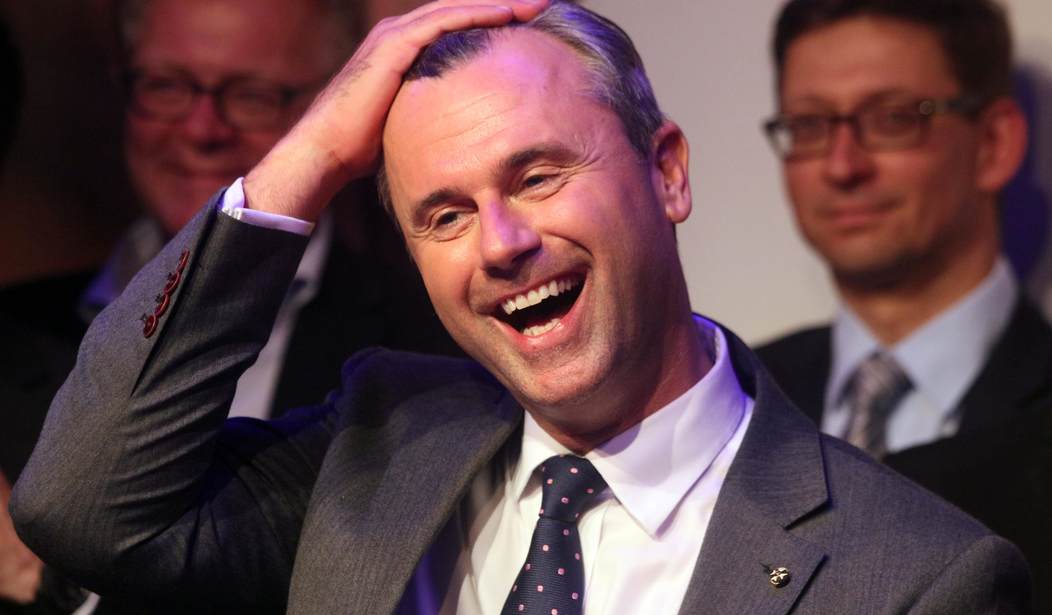The conservative Freedom Party’s (FPO) Norbert Hofer is likely to become Austria’s next president. According to the latest polls, Hofer is a few points ahead of independent candidate Alexander Van der Bellen.
A poll of 600 people published by the Oesterreich tabloid showed the average support for Hofer at 53 percent, one point higher than a poll in late July, versus 47 percent for former Greens head Alexander Van der Bellen.
Another poll, of 778 people with a margin of error of 3.6 percent, published by newspaper Kurier, found 38 percent thought Hofer would win while 34 percent expected Van der Bellen to.
Van der Bellen won the election earlier this year, but those results were canceled due to “to sloppiness in the count.” According to the official results, Van der Bellen won that election by a mere 31,000 votes.
From the looks of it, that’s set to change on October 2, when Austrians go to the voting booth for the second time this year.
Like many other conservative and populist parties (they’re often confused with each other, but they’re certainly not always the same thing: the PVV party of Geert Wilders in the Netherlands is, for instance, clearly populist, but it’s also in favor of big government and the welfare state), the FPO is benefiting from the migration crisis. Increasingly, more Austrians are dissatisfied with the traditional, more centrist parties that offer no solutions. Austrians see their country — and continent — being overrun by immigrants from the Middle East (people who do not share their values and beliefs, and who are making little to no effort to integrate).
In contrast to the old, traditional major parties, the FPO is clear about its views and policy proposals: the party wants to limit immigration and make sure that immigrants who do remain in Austria are fully integrated.
A victory for Hofer will mark an important shift in Austrian politics, especially because it’ll make it likely that the FPO will also stage a major win in the parliamentary elections scheduled for 2018. This means that the party may get the opportunity to finally put its ideas into practice — to fight back against decades of multiculturalism and unlimited immigration.
That’s good news, but there’s even more reason to be positive about Europe’s future: Alternative für Deutschland, Germany’s new truly conservative party (Chancellor Angela Merkel’s CDU hasn’t been conservative for years), is also rapidly on the rise. Although this party is routinely labeled “far right” by the media, it is no such thing. The party is conservative: pro-small government, pro-free markets, strict on immigration, and skeptical of the ever-growing power of the European Union. That does not, however, make them “far right,” which is obviously code for “neo-Nazi.”
Conservatism may be in trouble in the United States, but it’s alive and kicking in Europe.









Join the conversation as a VIP Member